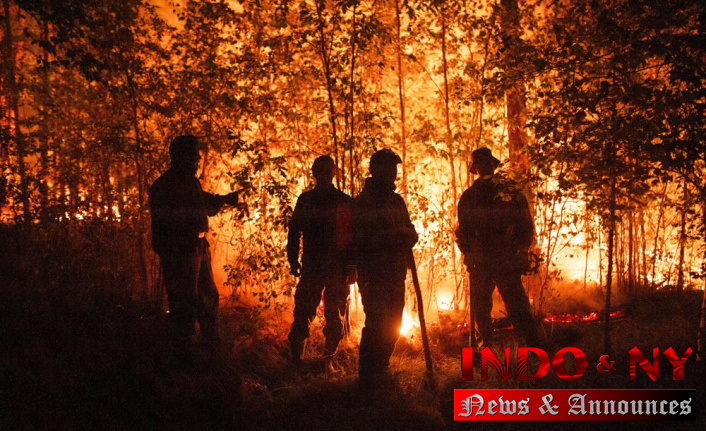This will lead to increased fires and other health problems for governments.
The Western U.S. northern Siberia and central India are already seeing more wildfires. According to the report by the United Nations Environment Program, the probability of catastrophic wildfires worldwide could rise by a third by 2050, and more than half by the turn of this century.
The report stated that areas once thought safe from major fires will not be protected anymore, and the Arctic was one of the most likely to see a significant increase.
The report concluded that wildfires are likely to increase in the tropical forests of Indonesia and South America's southern Amazon.
Andrew Sullivan from the Commonwealth Scientific and Industrial Research Organisation (Australia), one of the report's author, stated that "uncontrollable and destructive wildfires are becoming a part of many of the seasonal calendars throughout the world."
The report describes a worsening circle: Climate change causes more drought and higher temperatures, which make it easier for fires to start. In turn, those fires release more climate-changing carbon into our atmosphere as they burn through forests or peatland.
Glynis Humphrey, a co-author of the report, stated that wildfires are decreasing in some areas, including Africa, because more land has been devoted to agriculture.
U.N. researchers found that many countries continue to spend too much money and too little time trying to prevent fires. The report stated that land use changes can worsen fires, including logging, which leaves behind debris that could easily ignite, and intentionally incendiary clearing forests to make way for agriculture.
Fires can often be devastating for poor communities, as they can cause damage to water quality, crop destruction, and reduce the land available for food production.
Humphrey stated that fire can have a negative impact on people's livelihoods and their economic situation. It is essential that fire be included in the same disaster management category as floods or droughts. It is essential.
Officials in the United States have unveiled a $50Billion plan to reduce the risk of fire over the next ten years. This includes more aggressively thinning forests around areas where nature meets. Officials in President Joe Biden's government say that only a small portion of this work has been funded. The federal infrastructure bill recently passed funds funding for $3 billion over five year.
Critics say the plan continues to place too much emphasis on fighting small fires that aren't dangerous to houses.
Researchers from the U.N. also called for increased awareness about the dangers of wildfire smoke inhalation. This can impact tens to millions of people each year, as plumes of major wildfires drift thousands miles across international borders.












